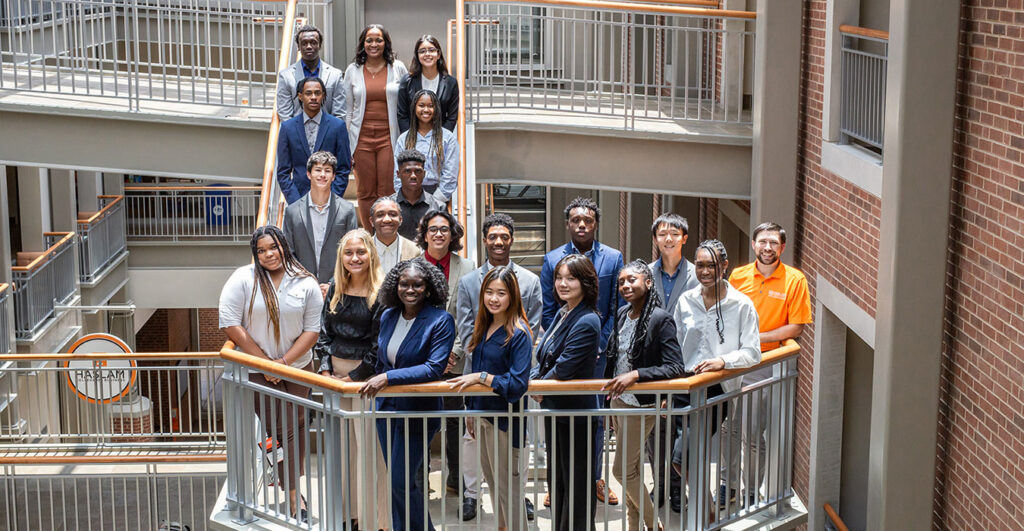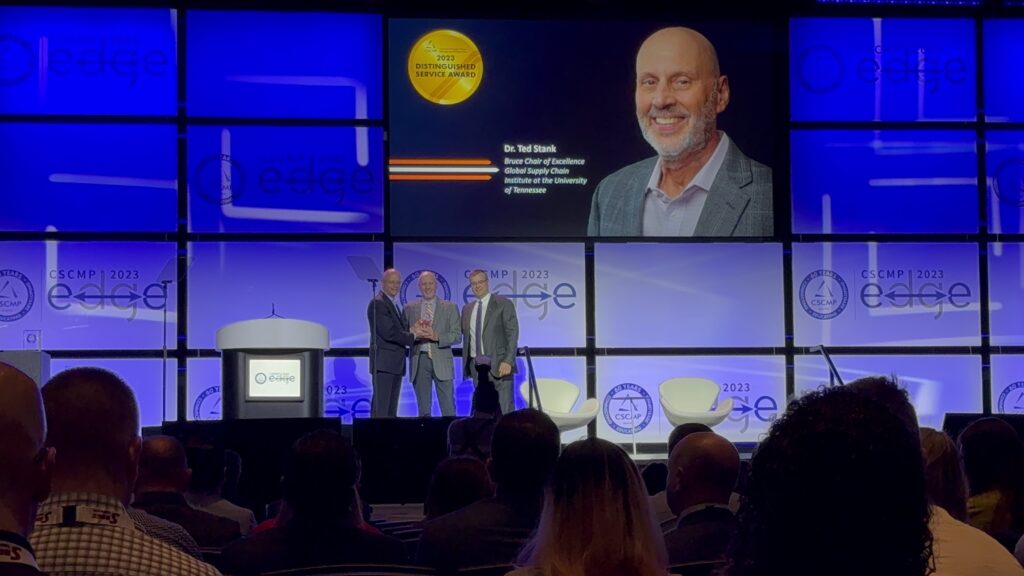Blog
Essential reading from leading researchers and scholars on the latest trends and topics relevant to global supply chain management.

Challenge Area #1: Thinking About Supply Chain Agility
This is the first in a series of blog posts based on the applied research report “Meeting the Challenge of Supply Chain Agility” by the research team of Bruce Behn, Pradeep Charath, Paul Ditmann, and Dan Pellathy. The first article introduced the concept and its benefits for businesses. Download the white paper.

Meeting the Challenge of Supply Chain Agility
This is the first in a series of blog posts based on the applied research report, “Meeting the Challenge of Supply Chain Agility,” by the research team of Bruce Behn, Pradeep Charath, Paul Ditmann, and Dan Pellathy.

New GSCI Collaborative Continues Rich History of Leadership in Transportation and Logistics
This August, the University of Tennessee, Knoxville’s Global Supply Chain Institute launched the Transportation and Logistics Collaborative (TLC), which will work closely with the Center for Transportation Research and Baker School of Public Policy and Public Affairs to bolster the understanding of how transportation systems, policies, and industry interact in the United States and around the world.

Will China Restricting Metal Exports Bring on a New Era for Mining in North America?
This post is the fifth in the series Raw Materials and Natural Resources in the Supply Chain, which explores the understudied and often misunderstood processes for sourcing natural resources used as raw materials by the industries that make the products we buy every day.

Five Early Takeaways from the Tentative UPS-Teamsters Agreement
Previously Alan Amling, who spent 27 years at UPS, wrote about the most important questions supply chain professionals needed answers to from the company's negotiations with the Teamsters Union. Now that a tentative agreement has been reached, he explains the implications of this historical deal for UPS, Teamsters, and the U.S. economy.

High School Students Thrive at Inaugural SCM Summer Camp
Over six days from July 9–14 at the University of Tennessee, Knoxville, more than a dozen high school juniors and seniors from Tennessee and other states learned about leadership, how to prepare for college, and the benefits of majoring in supply chain management.

Global shipping has a new climate strategy – it’s vague, obscure and almost noncommittal, but it may be pointing the industry in the right direction
The world’s largest shipping companies are starting to update their fleets for a greener future. Maersk received the world’s first dual-fuel methanol container ship in July 2023, and dozens more container ships that can run on alternative fuels are currently on order. The industry – responsible for about 3% of global greenhouse gas emissions, more than Canada and Ireland combined – has reasons to act and to have some confidence in its multimillion-dollar investments.

Taking Leap Paid Off for MS SCM Online Grad Russell McLendon
This story is the third in a new series, Mapping Success, which shares how the Global Supply Chain Institute and UT’s supply chain management education programs impact the lives and careers of students and professionals in the industry. Read the first about how the MS SCM Online helped Ron Wallace transition from public education to procurement and how EMBA-GSC accelerated Smita Davis’s move into senior leadership.

UPS-Teamsters Negotiations: Five Questions You Need to Know the Answers To
There are very few corporate partners of the University of Tennessee’s Global Supply Chain Institute that would not be impacted by a UPS Teamsters strike. UPS delivers 20 million packages per day in the U.S., equating to about 6% of U.S. GDP. The contract between UPS and the Teamsters Union expires on July 31, and negotiations are heating up.

UT Haslam’s Ted Stank Honored with Supply Chain Hall of Fame Induction
The Council of Supply Chain Management Professionals (CSCMP) has selected Ted Stank, Chancellor’s Professor at the University of Tennessee, Knoxville, to receive the 2023 Distinguished Service Award. This selection means Stank, who is also the Harry J. & Vivienne R. Bruce Chair of Excellence in Business, co-executive director of the Global Supply Chain Institute and head of the Advanced Supply Chain Collaborative at the Department of Supply Chain Management at UT’s Haslam College of Business, will be inducted into the Supply Chain Management Hall of Fame.